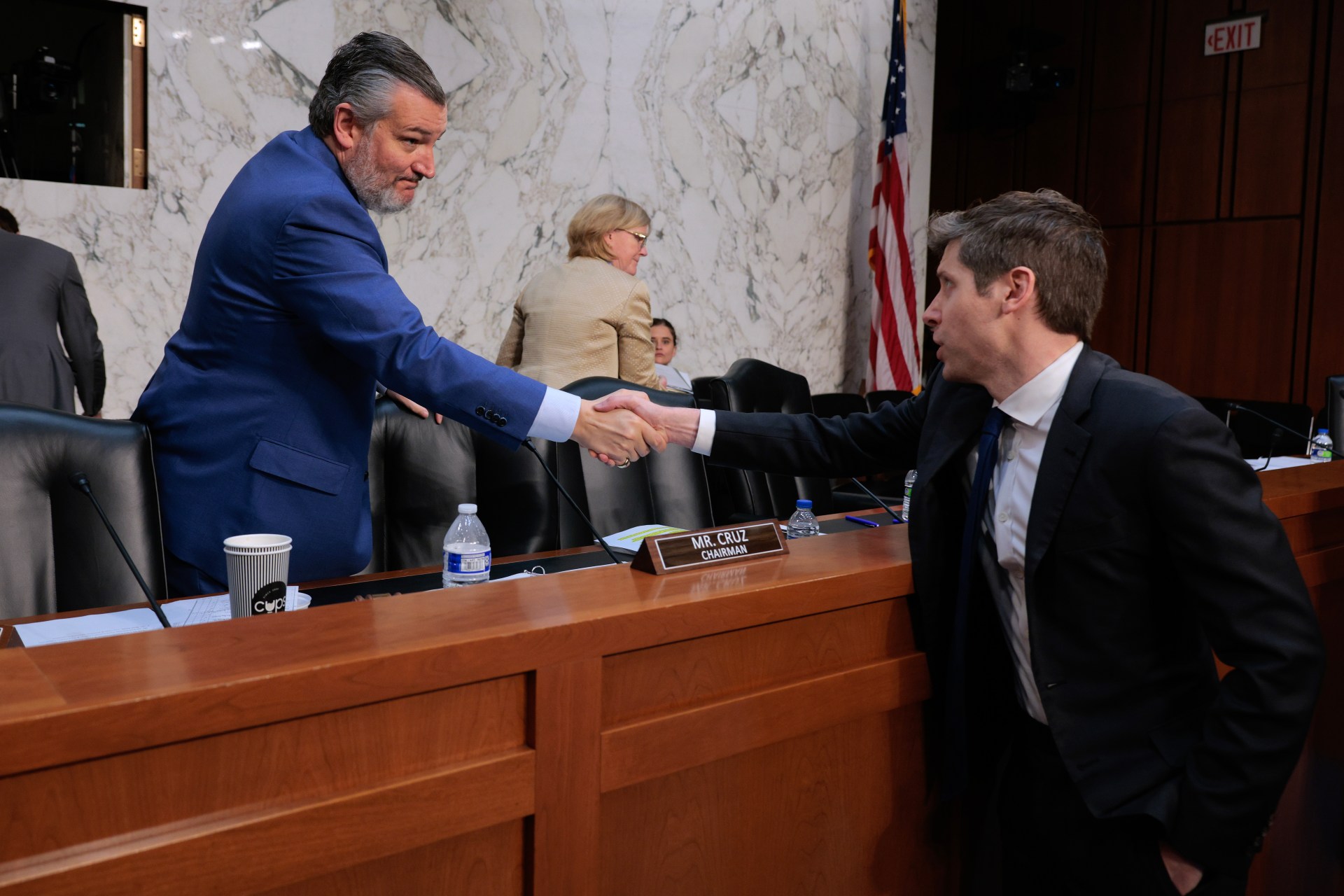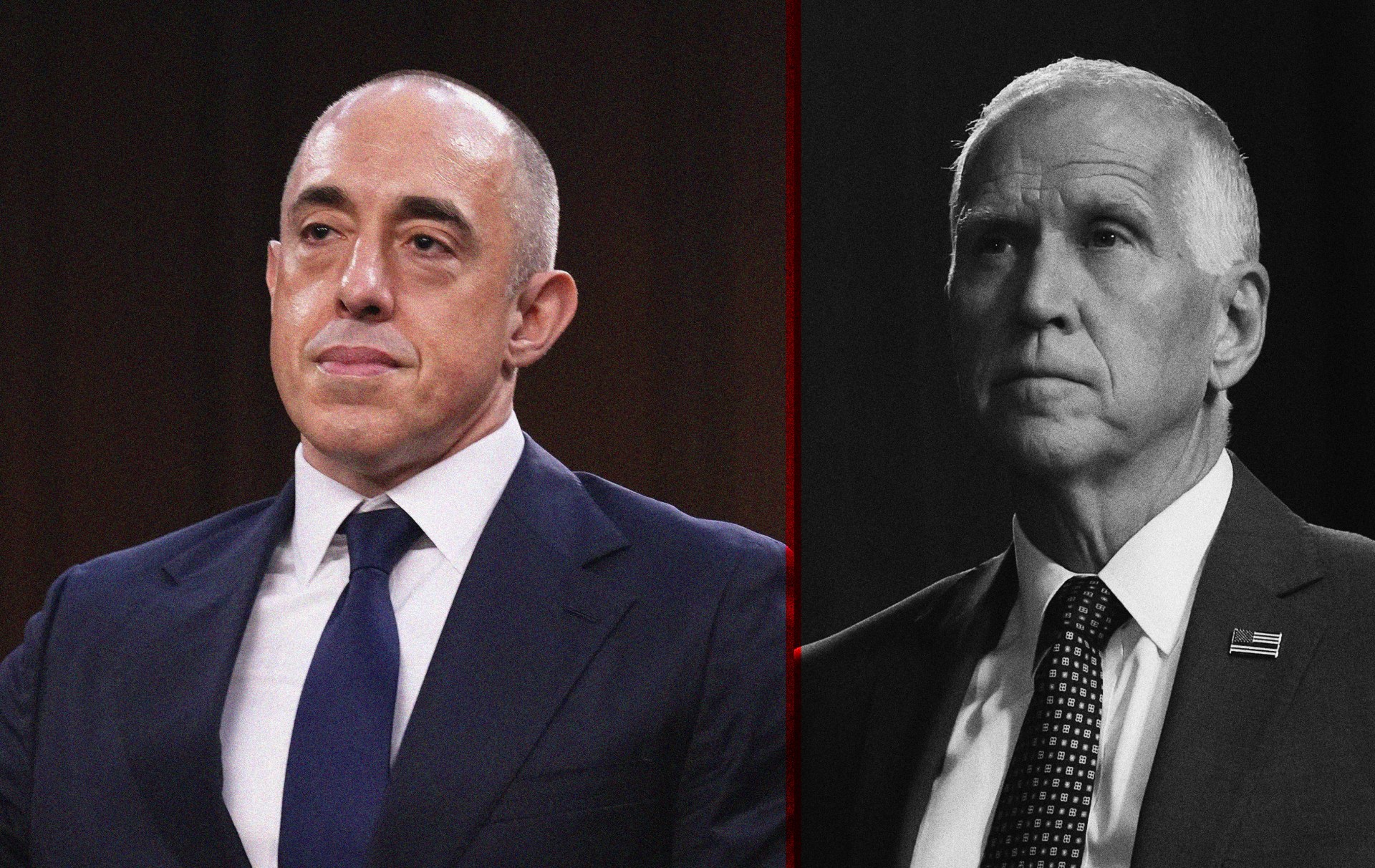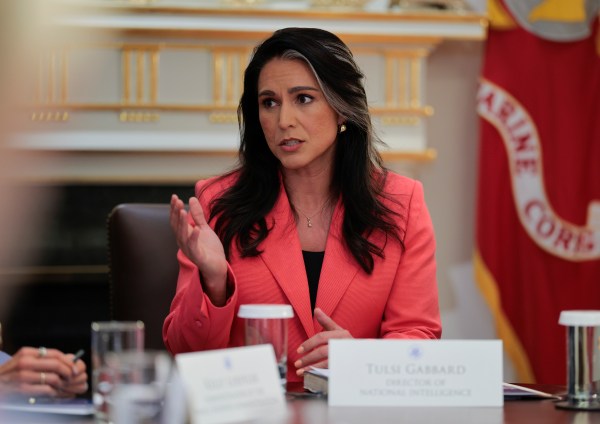There’s been a fight this week in Congress over President Donald Trump’s requested package of cuts to government spending that some moderate Republicans opposed. That’s been separate from the high drama surrounding a procedural vote to move forward a bill on cryptocurrency. And just for a little fun, the president keeps floating the idea that he’s about to fire Federal Reserve Chairman Jerome Powell.
But that’s all secondary news as we barrel to the end of the second week in a row where the big story in Washington is, incredibly, focused on a convicted child sex offender who died by suicide in prison nearly six years ago.
Yes, the Jeffrey Epstein circus continues days after the Department of Justice issued a memo confirming several conclusions reached years ago: that Epstein had, in fact, killed himself; that there is no evidence Epstein had a “client list” that would incriminate the powerful and wealthy as part of his sex trafficking ring; and that there is no evidence suggesting the need for continued federal investigation.
In normal times, this memo would not be remarkable in that it confirmed what was already known about Epstein’s death and that there’s no other evidence requiring additional investigation. But these are not normal times, and this is no standard crime story. Epstein has become, for a large part of the Republican base, the central figure in a larger conspiracy theory (or two) in which high-level government officials, mostly Democrats, are engaged in the most sordid and vile sexual exploitation of minors. In this thinking, Epstein’s death was no accident, but an attempt by elites to protect themselves from exposure, and it would take truth tellers in government to lay bare the full story of corruption, cover-up, and sanctioned perversion.
This is all a crock, but Trump and his political movement took advantage of the conspiracy theorizing and promised, throughout the 2024 campaign, that the Epstein list would be released and bad actors would be brought to justice. Administration officials were publicly promising to expose the full conspiracy mere months ago. So last week’s memo was a kick in the gut to those who had believed them. And it made them angry.
Ever since, Trump has been in damage control, trying to tamp down interest in a story that he and his surrogates helped gin up. It’s a rare example of the leader of the most successful populist movement in American history being out of step with the movement’s most devoted voices. First, Trump criticized the press for asking questions about Epstein. Then, he defended Bondi, his attorney general, against claims that she was simply part of the cover-up. The president has recently taken to blaming the entire fiasco on (who else?) the Democrats, particularly Barack Obama and Joe Biden, and employing the term “hoax,” which up to this point has never failed to rally his people to his side.
Will this work? While many in the MAGA media universe have come to heel, it’s not been so easy to distract others. And Trump’s own inability to stop commenting about how he’s sick of commenting on Epstein has only fueled the conspiracy theorists (and those looking to take political advantage of them) to suggest that their would-be savior, Trump, is also in on it.
With all the aforementioned activity in the nation’s capital, there’s plenty of substance available for us to sink our teeth into. But this week, thanks to the Epstein fiasco, was not really the week to do that. But hope springs eternal.
Top Stories From the Dispatch Politics Team
What form regulation of AI should take is a matter that has divided congressional Republicans. On one side are those who want a light regulatory touch so that American companies can create new AI models to compete with China’s. On the other are those who worry about the revolutionary economic and social changes, such as job losses, that AI is set to bring and see a need for stringent regulations in some areas.
The weekend before the July Fourth holiday, Republican Sen. Thom Tillis announced his retirement—and declared his own political independence. “It’s become increasingly evident that leaders who are willing to embrace bipartisanship, compromise, and demonstrate independent thinking are becoming an endangered species,” Tillis said in a retirement statement that came as President Donald Trump was threatening to field a primary challenger to the North Carolina lawmaker over his refusal to support the GOP’s tax-and-spending bill. “I look forward to having the pure freedom to call the balls and strikes as I see fit,” Tillis added.
We live in an era of political confusion, driven in no small part by a debilitating addiction to conspiracy theories and an impulse for partisans to grab whatever rationalization is close at hand to win the debate of the moment. From explaining away electoral defeats as the result of cheating to being carried away with the most outlandish rumors, politicians are more than willing to play along with many voters’ willingness to believe the worst of their opponents. But as the whole Epstein fiasco has demonstrated, there comes a time when those who have been led to believe the conspiracy is about to be exposed demand the goods—and the results are often underwhelming.
If we’ve learned anything about President Donald Trump, it’s that he likes to be seen as a dealmaker, and more recently, a peacemaker. Both personas were on display when officials from warring Rwanda and the Democratic Republic of the Congo (DRC) joined the president in the Oval Office late last month after signing a U.S.-brokered peace agreement which included pledges of greater economic investment including in the region’s critical mineral reserves. The administration touted the deals as a win for an Africa policy pivot away from foreign aid and toward a commercial diplomacy that prioritizes trade and investment.
Let’s recap: The Pentagon ordered the pause. The White House affirmed the pause as administration policy. Everyone in Washington supportive of continuing Ukraine aid, including within the Pentagon, raised a fuss. The president himself said he didn’t know who ordered the pause. Then the Pentagon claimed the pause wasn’t really a pause but part of a “review process” and, actually, was more of a “framework” for the president to make a policy decision. And ultimately, Trump’s decision was to reverse what his White House had originally asserted was administration policy. Got it? The whole episode leaves us with more questions than answers.
Enjoying our Dispatch Politics Roundup? Consider forwarding this article to someone you know who likes independent, fact-based journalism.












Please note that we at The Dispatch hold ourselves, our work, and our commenters to a higher standard than other places on the internet. We welcome comments that foster genuine debate or discussion—including comments critical of us or our work—but responses that include ad hominem attacks on fellow Dispatch members or are intended to stoke fear and anger may be moderated.
With your membership, you only have the ability to comment on The Morning Dispatch articles. Consider upgrading to join the conversation everywhere.